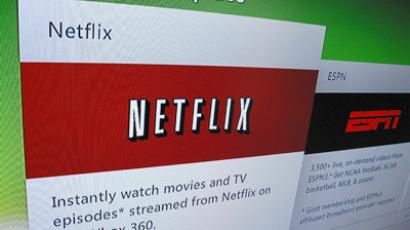Internet giants unite to lobby Congress

The biggest names from Silicon Valley are flocking to Washington in order to make an impact on Capitol Hill. Under the name ‘The Internet Association,” Google, Facebook, Amazon and others have set up shop on K Street to lobby Congress.
The Internet Association officially got off the ground on Wednesday by announcing that after months of work, the coalition that includes employees from the Web’s biggest entities has entered the world of lobbying. “A free and innovative Internet is vital to our nation’s economic growth,” Michael Beckerman, president and CEO of The Internet Association, says in a statement this week. “These companies are all fierce competitors in the market place, but they recognize the Internet needs a unified voice in Washington. They understand the future of the Internet is at stake and that we must work together to protect it.”In all, 14 companies have so far signed on to be part of the group, including Amazon, AOL, eBay, Expedia, IAC, LinkedIn, Monster, Rackspace, salesforce.com, TripAdvisor, Yahoo and Zynga. The full roster is listed on the coalition’s website, which advertises itself as being “dedicated to advancing public policy solutions to strengthen and protect Internet freedom, foster innovation and economic growth and empower users.” In order to do as much, though, it’ll require some serious campaigning in Washington, which has some skeptics already concerned about how cozy lobbyists and lawmakers will become when the future of the Internet is at stake.Google, without a question the biggest name on the Web, has already argued in Washington in hopes of being heard by Congress, but it’s been an effort that hasn’t come cheaply. In only the first half of 2012, Google’s political action committee, NetPAC, spent $423,000 on the campaign efforts of lawmakers, with an additional $36,500 coming by way of Yahoo. In terms of direct lobbying, though, that amount seems meager. Google’s lobbying efforts during the first two quarters of 2012 cost them $9 million, with Facebook forking over another $1.6 million on their own. Tim Worstall, a contributor with Forbes, writes that something seems amiss that these entities are about to spend even more to have their voices heard together. “When anyone even remotely successful has to run to Washington to stop them ending that success then yes, we’ve got a problem, don’t we?” he writes in an op-ed published this week. For Michael Beckerman, the coalition’s CEO, it’s a maneuver that is necessary in order to make sure legislation that’ll grossly regulate the Web isn’t weighed by Congress, such as the Stop Online Piracy Act that spurred a massive blackout and protests earlier this year and last.“Congress nearly altered the Internet's fundamental DNA without fully appreciating the perspectives and concerns of the engineers, entrepreneurs, innovators and tens of millions of individual users that make the Internet what it is today,” Becerkmen writes in a column published this week by the Huffington Post. “The Internet Association was formed to protect an innovative and free Internet and to relentlessly represent this critical economic sector, in collaboration with main street businesses and individual users, to ensure that the Internet will always have a seat at the table in Washington.”“The Internet provides incredible benefits to our economy and to society at large. Policymakers must understand that our country, and the world, depends on a free Internet. As we approach another presidential election, the gold standard of democracy around the world, our message to both parties and both candidates is simple: The Internet is one of the greatest engines for economic growth, freedom and prosperity the world has ever known. The Internet Association, and millions of active users (and voters), stand ready to protect a free Internet and the innovation it fosters,” he adds.When the powers and payrolls of the members of the Internet Association are combined, though, almost anything could be possible, especially when carry the amount of clout that Google and Facebook carry. Under the direction of Mr. Beckerman, those battles could extend pass issues such as net neutrality and Internet freedoms if the group elects to do so. Previously some members of The Internet Alliance came together to rally against the Stop Online Privacy Act, or SOPA, although their lobbying counterparts in Hollywood attempted to have the legislation signed into law by way of some serious urging from the Motion Picture Association of America, a trade group represented by former Senator Chris Dodd.Before signing on with The Internet Association, Beckerman sat on the House Energy and Commerce Committee as deputy staff director, a position that he received payment for as recently as June 30 of this year, according to records published on Legistorm.com. Reuters reports that Beckerman was employed as an aide to Fred Upton, a Republican representative from Michigan who serves as chairman of the House Committee. During his tenure, Upton’s efforts have included proposing penalties for companies that abuse the content rating and labeling system set up for video games and attempts to prohibit late-term abortion under law. He also went on the record to speak out against both same-sex marriage and gun control, and his ideas about limiting government regulation doesn’t end with just the Internet either. Upton told the Wall Street Journal in 2010 that he was "not convinced" that "carbon is a problem in need of regulation” and fought to ensure that federal efforts to clean up the air would go unapproved.It is also a possibility that The Internet Alliance will heed to calls for action from Google, who is expected to be bringing the most money to the table. In the past, however, Google’s political contributions to congressmen have raised questions about what they think exactly about Internet legislation. CNet.com reports that Google has handed over $5,000 apiece to Rep. Kevin McCarthy (R-Calif.) House Armed Services Committee Chairman Buck McKeon (R-Calif.) and Rep. Jeff Flake (R-Ariz.), all lawmakers who have advocated for the government to continue the warrantless wiretapping of Americans’ electronic communications. All three representatives voted last week to reauthorize the federal eavesdropping of phone calls and emails as granted under the 2008 amendments to the Foreign Intelligence Surveillance Act, which is now expected to be approved by the Senate and left on the books for at least another five years. Google made an equal donation to Sen. Jay Rockefeller (W.Va.), who asked Congress in 2010 to give the president of the United States control of the Internet “in times of an emergency."














